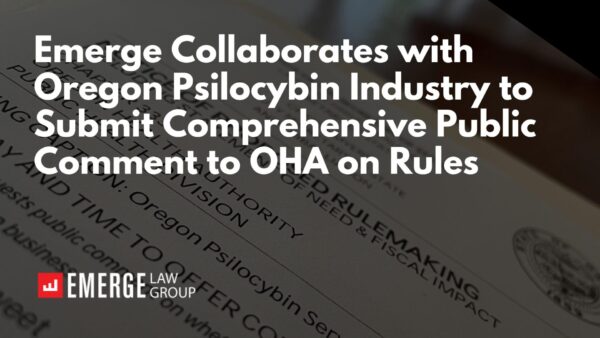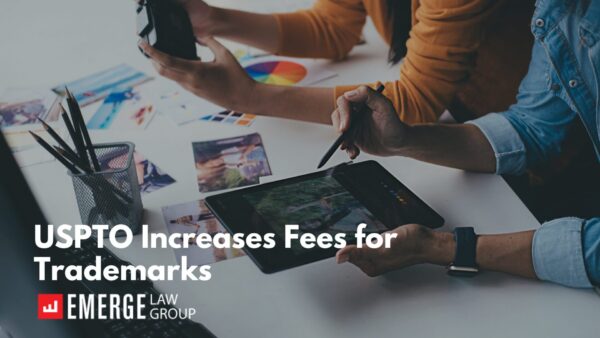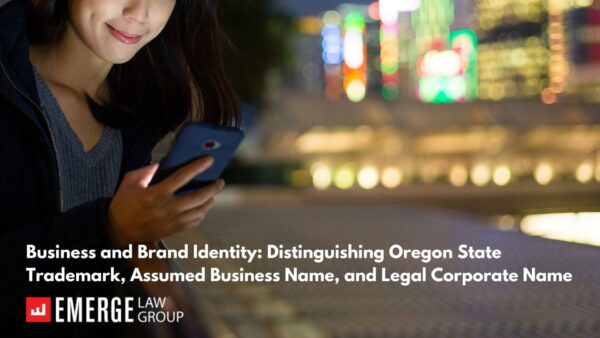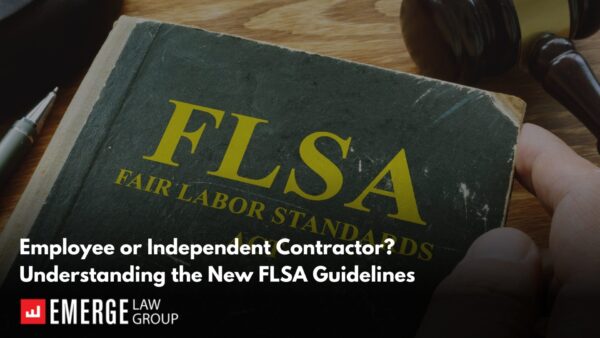The federal Coronavirus Aid, Relief, and Economic Security Act (the “CARES Act”) was signed into law on March 27, 2020 to provide assistance to individuals and businesses affected by the global COVID-19 pandemic. Under Sections 1102 and 1006 of the CARES Act, the Small Business Administration (the “SBA”) is authorized to establish a new loan program known as the “Paycheck Protection Program” (the “PPP”) with $350 billion in funding and a goal to disburse loans as quickly as possible to small businesses to cover payroll and other operating expenses. Importantly, the principal amount of PPP loans may qualify for forgiveness so long as certain requirements are met. Because PPP loans are issued on a “first come, first served” basis, it’s crucial that eligible businesses apply now.
The PPP went “live” on April 3 and that same day, the SBA published its interim final rule implementing the program (the “Rule”). The Rule is subject to a 30-day public comment period and subsequent amendments may follow. If COVID-19 has affected your business, read our summary below to better understand the SBA PPP loan eligibility requirements and application process.
Is my business eligible for a PPP loan?
“Small business concerns” or certain tax-exempt nonprofit organizations that were in operation on February 15, 2020 and had 500 or fewer employees are eligible for a PPP loan. A “small business concern” is a business that is independently owned and operated, not dominant in its field of operation, and does not exceed small business size standards listed in the North American Industry Classification System (“NAICS”). The SBA has a webpage with a table of small business size standards that matches the NAICS codes.
Sole proprietors, individual contractors, or certain self-employed individuals operating as of February 15, 2020 are also eligible for a PPP loan on and after April 10, 2020.
Although these requirements are easy to meet for many small businesses, the SBA has a host of eligibility disqualifiers. Ineligible types of businesses are listed in the SBA’s Standard Operating Procedure 50 10 5(K) published on April 1, 2019 (the “SOP”) and include, among others, businesses engaged in any illegal activity.
Despite most states with shelter-in-place orders deeming marijuana businesses as “essential” during this pandemic, marijuana is still classified as a Schedule 1 drug under federal law and the SBA specifically identifies “marijuana-related businesses” as engaged in illegal activity. Both “direct marijuana businesses” (e.g.. businesses that grow, produce, process, distribute, or sell recreational or medical marijuana or marijuana products) and “indirect marijuana businesses” (e.g. businesses that derive any of their gross revenue from sales to direct marijuana businesses of products or services that could reasonably be determined to aid in the use, cultivation, or distribution of marijuana) are considered ineligible to receive a PPP loan. However, businesses engaged in hemp-related activities consistent with the 2018 Farm Bill are eligible for a PPP loan. We can advise on the eligibility of your business if you are unsure whether you qualify for the program.
How much can I borrow and what are the loan terms?
The maximum loan amount available to borrowers under the PPP is the lesser of $10 million or an amount determined using the payroll-based formula specified in the CARES Act. The Rule contains an easy-to-use guideline for the payroll-based formula, but we recommend working with your accountant to aggregate payroll costs and determine the appropriate PPP loan amount.
The interest rate on a PPP loan is 1% and although loan payments are deferred for 6 months, interest accrues on the principal amount borrowed including during the deferment period. If your business does not qualify for loan forgiveness, the maturity date for the loan is two years.
Do I qualify for forgiveness under the PPP?
The full principal and accrued interest on the PPP loan is forgivable so long as you use the loan proceeds for authorized purposes and maintain employees at their current compensation levels. You can use the PPP loan proceeds to pay for payroll costs, costs related to group health care benefits and insurance premiums, mortgage interest obligations, rent payments, utility payments, and interest payments on debt obligations. However, only up to 25% of the loan forgiveness amount can be attributable to non-payroll costs.
To apply for forgiveness, you must document the proceeds used for payroll costs and other non-payroll expenses during the 8-week period following the loan issuance. If you use PPP loan proceeds for unauthorized purposes, the loan amounts will not be forgiven and must be repaid. Furthermore, if you knowingly use the loan proceeds for unauthorized purposes, you may be subject to additional liability such as fraud charges.
Can I apply for a PPP loan if I already received an SBA EIDL loan?
You can still apply for a PPP loan if you already received an SBA Economic Injury Disaster Loan (“EIDL”). However, if you used your EIDL loan to cover payroll costs, your PPP loan must be used to refinance your EIDL loan. Also, the $10,000 grant issued in connection with the EIDL will be deducted from the loan forgiveness amount on the PPP loan.
When and where should I apply for a PPP loan?
You have until June 30, 2020 to apply for a PPP loan. However, PPP loans are “first come, first served” and lenders have been inundated with PPP loan applications since the program went “live.” Therefore, we urge you to apply as soon as possible.
The Rule does not require a borrower to apply with the borrower’s current bank. However, to prioritize applications, many banks are only lending to businesses with a pre-existing business banking relationship. If your bank is not servicing PPP loans or you do not have a pre-existing business banking relationship at a bank, there are third-party loan marketplaces that route PPP loan applications to SBA lenders. The SBA also has a helpful webpage listing participating PPP lenders.
If you do not qualify for a PPP loan, there may be state and local options available to you. At Emerge Law Group, we strive to provide you with the important information you need to safeguard your business during the COVID-19 pandemic. Please don’t hesitate to reach out for all of your business-related legal needs.





